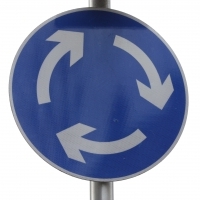Overcoming Analysis Paralysis

Analysis paralysis is that situation in which instead of making a decision and getting on with things, you keep analyzing, checking, reviewing, examining, and burying yourself in ever more details. It’s a case of overthinking the situation, in the process making it more complicated than it really is.
You may feel like you’re making progress; all this analyzing takes effort, after all. But you’re actually getting no closer to finalizing a decision and taking action.
Interestingly, analysis paralysis is one of the most common afflictions in the modern workplace. It’s not limited to major decisions; even seemingly minor decisions can get caught up in it. Although its presence may suggest weak decision-making skills, it’s often a mental block caused by a fear of doing something wrong, making a bad decision, or facing the unknown. It seems better to spend a little more time (and still a little more and, if you’re a perfectionist, even more) seeking the best solution than making a decision that could turn out to be wrong.
If you’re afflicted with analysis paralysis, getting past it may entail that you practice some tough love with yourself: Just make the decision! Take the action! Stop pussyfooting around; accept that you’ll never know all there is to know and get on with it.
If that’s too extreme, some easier steps may help. For example, set a timer to give yourself a defined (and finite) amount of time to complete the task. Or make a commitment to take action by a certain date—and then do it. Telling someone about the commitment may up the odds that you don’t weasel out at the last minute.
You might also have a conversation with yourself about how not every decision has to be perfect. Most of your decisions will be just fine, given the information available up to that point. If a decision proves not to be the best one you could have made, it’s an opportunity to learn from the situation. You’ll win a few and possibly lose a few, but no one’s perfect—not even perfectionists!
There’s also a case to be made for following your instincts. Learn to trust that the decision your ever-present inner voice is urging you to take is the right one. Obviously, it’s unwise to make sudden or irreversible decisions about major life or work issues. But for those smaller, everyday decisions, try following your gut. As unnerving as that may be at first, every decision you make will make the next one easier than it might otherwise be.
Finally, ask yourself what the downside is of making a decision that proves not to be the best. What’s the worst that can happen? You may discover that the worst possible outcome is far less dire than the agony of delaying action any longer.

